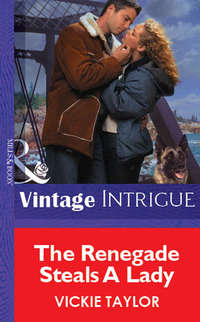
Полная версия
Her Last Defense
“I hope I don’t have to.” Especially since he doubted he could hit the broad side of a barn at more than ten paces.
“I was friends with your grandpop for fifty years, known you all your life. I remember the first time he brought you out fishin’ with us. You were just knee-high to a tadpole.”
Clint set his mouth in a grim line. “I’ve grown some since then.”
Skip’s jaw gaped. “Charlie would roll over in his grave if he saw this. You standing with her agint’ your own people.”
“Lemme go. I’m gettin’ out of here.” The deputy still in Clint’s grasp squirmed.
Clint turned his attention to him. “Where you going to go, Slick? Home to that wife and kid you’re so worried about so you can get them sick, too?”
Slick’s gaze fell to his feet.
“What about you, Vern? You got family?” he asked a heavyset paramedic who looked like a rabbit looking for a bolt-hole.
“Mom,” the man mumbled. “And a sister.”
“You plannin’ to carry this disease home to them?”
Vern raised his chin. Resolve mingled with the fear in his eyes. “No, sir!”
“What about the rest of you? You going to march into town, shake hands with your neighbors, pinch their babies’ cheeks? You going to be the one to wipe out Hempaxe and a hundred more small towns just like it?”
Clint picked on the deputy because he knew he’d get the answer he wanted. He fisted his hand in the front of the young man’s shirt, forcing him to raise his gaze to Clint’s. “You going to be the one to start the epidemic, Slick?”
“No, sir!” The deputy’s lip curled on the emphatic sir.
Clint released his hold on the man’s shirt and looked to the man next to him. “What about you, Skip?”
Skip kicked up a clod of dirt with his toe. “Hell, no.”
He swept his gaze over the others. “Right now, if this thing is out, at least it’s contained. There’s two thousand acres of forest between civilization and the virus. Are we gonna make sure it stays that way?”
The rumble of yeses and yessirs started slow and quiet, but gained momentum quickly. One by one the workers’ chins came up. Their sooty faces were somber, their eyes still scared, but tempered with resignation.
“All right, then. Why don’t we all listen to what the lady has to say?” He turned to Dr. Attois. His stomach flipped as their gazes sparked like jumper cables when they touched briefly. The little furrow between her perfectly arched eyebrows drew far too much of his attention. Never mind her tongue flicking out to moisten her lips before she spoke.
Damn. He tightened the screws down on his libido, his expression unmoving. Whatever he saw in her, it wouldn’t reach his face. He hoped.
She cleared her throat and looked away. “Symptoms of the virus usually begin to appear within twenty-four hours of exposure, but we can confirm or deny the presence of the virus in your systems after twelve with a simple blood test. We’ll move away from the crash site. The first step is for my team to set up the portable decontamination showers and get everyone disinfected. We have choppers coming in from Houston with everything we’ll need after that—tents, cots, tables, food. You think of something you need, let me know. I’ll get it.”
A thin, black-haired young man in turnout gear raised his hand. “Only one thing I need, lady. That’s a pencil and some paper.”
Heads turned in question toward the man.
“Wife’s been after me for years to write out a will,” he said. “Guess it’s ’bout time I obliged.”
At least the workers had settled, thanks to the Ranger. Macy felt sorry for them, knowing the anxiety and the ordeal they faced if ARFIS had indeed escaped, but she had to put that out of her mind. She had a job to do.
A virus to hunt.
She left the men, including Ranger Hayes-with-the-disturbing-eyes, in the competent hands of her team. Susan already had them lining up for interviews and baseline health screenings while Christian and Curtis erected the decon showers that had arrived on the first supply chopper.
“Who was first on scene? Are they still here?” Susan asked. In spite of the rising pitch of her voice, nothing in her tone belied the urgency of finding out if anyone had been near the crash scene other than the workers present. “Were there police here? Civilians?” If there had been, they would have to be tracked down and quarantined quickly. Susan knew that. She and Christian and Curtis made a good team. They knew their jobs as Macy knew hers.
While her team kept the workers occupied, she had to find the virus.
Slipping away from the group, Macy made her way toward the wreckage. The Learjet looked like a toy that had been smashed by an angry child. Wires snaked out of jagged tears in the plane’s skin. Sheets of metal, crumpled like accordions, littered the ground.
She pushed aside the charred skeleton of a seat propped upright in a tangle of shrub, stepped over a man’s empty tennis shoe, refusing to wonder what had happened to the foot that had once been inside it. The trickles of sweat slipping down between her breasts became rivers. Her breath sounded huge inside the helmet, roaring through the filter like a hurricane wind, yet outside, there wasn’t even enough of a breeze to lift the little red flags marking the locations of human remains.
A lump formed in her throat as she pictured David Brinker beneath one of the white sheets, torn and bloody. David who was so fussy about his appearance.
Who couldn’t stand a little dirt under his nails, much less…
Anguish pulled her over to the draped body, but fear wouldn’t let her touch it. She bit her lip until she tasted blood. She had to know, she told herself. It was natural to need closure. Besides, she owed it to David, didn’t she? To face him one last time.
He wouldn’t have been on that plane it hadn’t been for her.
Heart racing, she inched closer to the white sheet, the flag at the corner, and glanced around as if she expected David’s ghost to materialize. To haunt her for what she’d done.
She told herself she was just being overly emotional. Letting her feelings run away with her again. Still, she couldn’t help whispering, “I’m sorry” before reaching for the corner of the covering.
“Sorry for what?” A hand landed on her shoulder.
Macy gasped, straightened and spun with one hand raised to fend off her attacker, even if he was already dead.
The Ranger caught her wrist halfway to his face.
“Whaa—?” She stumbled backward, barely righting herself before she landed on her keester. Blood buzzed in her ears. Her heart raced. She clutched her fist over her chest. “Are you crazy? What are you doing out here?”
“Following you.”
“You can’t be here. You don’t have a suit on.” But he had helped himself to a pair of latex gloves from the CDC supplies, she saw.
“I was all over this wreck this morning. If the bug is out here, I’ve already got it.”
“Then you should be in decon.” She glanced at the portable showers, now in working order, and the line of workers snaking around them.
“I’ll scrub down.” His voice was deep and seemed to vibrate deep inside her. It was as almost as unsettling as his eyes. “When it’s my turn.
She’d bet a month’s pay it wouldn’t be his turn until everyone else had finished.
Had he said he’d been following her?
She shook her head as if that would straighten out her jumbled thoughts. “What do you want?”
“The same thing you do.”
“Huh?” Brilliant. That implacable stare of his stole her ability to think.
“You’re looking for the bug, aren’t you?”
No sense in lying. The truth would be written on her face. She’d never been good at deception.
“I want to know what you find.” He jerked his head toward the camp. “They’re all going to want to know.”
He was right. They deserved to know. But what if she found the containment had been breached? How would she tell them?
She pulled in a shuddery breath. “I haven’t located the virus yet.”
His gray eyes went hard—harder than usual. “Did you think you’d find it under there?” He nodded toward the white sheet.
Heat crawled up Macy’s neck to her cheeks. “No. I—” She blew out her breath. “I knew these people. They were my coworkers. My friends.” More.
“They’re dead. Nothing you can do for them now. Those over there—” He nodded toward the camp. “They’re the ones that need your help now.”
A wave of guilt hit her—how selfish to be mourning her loss when so many more people—the Ranger included—faced their own mortality. David and his ghost would have to wait.
“The virus was in a steel cylinder about the size of a dormitory refrigerator, shiny and kind of dimpled on the outside, with two combination locks on top. It would have been inside a wooden crate with packing material, but that might have broken away or burned in the crash. Have you seen anything like that around?”
He shook his head, wiping the sheen of sweat off his forehead with the sleeve of his flannel shirt. He didn’t seem to mind that the sleeve was as grimy as his face. Again she thought of David and his sterile white shirts. Her stomach plunged.
“Most of the back end of the plane is over there, though.” He pointed west. He didn’t have to add that a container the size she was looking for would have been stowed in the rear of the aircraft. Didn’t have to. The front half was built out with passenger seats, the remains of one of which she was standing on.
She turned and started picking her way in the direction he’d indicated. She heard footsteps behind her, and turned to find him following. “You don’t have to come.”
“Yes. I do,” he said, and she didn’t bother to argue. She had a feeling it would be a waste of time.
Since she was wearing what was, for all intents and purposes, a spacesuit, she guessed it was appropriate that she felt as though she was walking on the face of the moon as she picked through the wreckage. She stared at a perfectly pressed pair of trousers hanging in a tree as if left there by a butler. She stepped over a half-completed crossword puzzle as if it were some alien life form. Each bit of debris made her wonder who it had belonged to. What it had meant to them.
Out of the corner of her eye, she watched the Ranger. He walked through the wreckage in a precise criss-cross pattern, his head sweeping left, then right. How did he do it? How did he walk through the remnants of the last moments of five peoples’ lives and look so unaffected?
His foot thudded against something metallic. He stopped, rooted in place like a man mired in quicksand. “Doctor?” His head turned, one eyebrow lifted. Then he reached down.
“For God’s sake, don’t touch it!” She hurried to his side.
“That’s it?” he asked when she crouched down next to him.
She nodded, running her gloved hand around the sealed edge. “Looks like it’s intact.”
“Hallelujah,” he said, but without the emotion that should have been attached.
She looked up at him and grinned, feeling like an eight-year-old who’d just caught her first crawfish. “It is intact!”
He didn’t return her grin. His mouth stayed set in the same firm line. She felt a blush creep up her neck. Of course he wasn’t grinning. The unit could still have leaked. The seal would have to be checked microscopically.
He nodded. “Then let’s get the hell out of here.”
“Fine by me. We’ll send a team in to remove it.” She marked the sight with orange flagging tape and pushed herself up. He reached out to steady her elbow. The touch sent an electric shock up her arm, even through the cumbersome suit. She took a step back, out of his grasp before she embarrassed herself, and froze.
There, behind the Ranger, a Plexiglas habitat lay cock-eyed in the scrub brush, one of the rubber handling gloves sealed into the hole in its side torn, the other missing altogether. The bolts on one end of the container had been sheared off, and the base ripped away.
The habitat was empty.
“Oh, God,” she said, feeling her flush fade as blood drained to her toes.
The Ranger’s grip on her arm tightened. “What?”
“The monkey…” She had assumed the animal had been killed in the crash with everyone else aboard.
His gaze swept over the broken habitat. “Animals?”
“One. A rhesus macaque. A research animal.”
“Does it pose a danger?”
“It was infected with ARFIS before we left Malaysia.” She lifted her gaze to his, then had to turn away from the flat intensity of his stare. From the power swirling in the metallic gray. Dread settled in her chest with the finality of a casket being lowered into a grave. “It’s highly contagious.”
And now it was loose in Texas. The Sabine National Forest was officially a hot zone.
Chapter 3
Clint’s skin was already red from scrubbing off three layers of epidermis in the decontamination shower. As he faced down the smug CDC security guard all dressed up to play soldier in camouflage fatigues, combat boots and a gas mask, even more blood flooded the capillaries just beneath the surface. The fact that Clint was wearing a navy-blue jumpsuit that was two sizes too small and had been told his own clothes were about to be burned, along with everything else he’d had on him this morning, didn’t help his disposition any. Neither did the gas mask he held in his left hand, a reminder of the seriousness of the situation here.
“I don’t think you understand, son. A Ranger never surrenders his gun and badge. Not while he’s still breathing.”
“Then you better hope somebody around here knows CPR, ’cause I’ve already got yours.”
“Correction. You’ve been holding mine while I showered. Now you’re going to give them back.”
“Correction,” Cammo Boy mocked. “Now I’m going to put your badge in the incinerator with the other personal effects. Your weapon—” He turned the plastic bag holding Clint’s Glock over in his gloved hands, studying it with a look of admiration. Clint noticed Cammo Boy didn’t carry a sidearm, which was a good thing. He didn’t look old enough to drive, much less shoot anyone.
Or maybe Clint was just feeling old these days. Old and broken.
“We’ll just have to find some other way to dispose of your gun,” Guard Boy finished.
Yeah. Like stowing it in his own duffle, Clint imagined. He lifted his hand, fisted it in green camouflage. Before the young guard could so much as blink, the steel toes of the young man’s boots were dangling an inch off the ground.
Yancy, the kid’s nametag read. He looked like a Yancy. Fancy Yancy. His boots were too clean ever to have seen field duty, and his fatigues actually bore creases. Clint was about to launch young Fancy Yancy into orbit when a voice that sounded as if it came right off an Old South plantation stopped him cold.
“Is there a problem here?” Dr. Attois studied Clint and the security guard, who both spoke at once.
“No.”
“Yes.”
“Put the corporal down, Ranger Hayes.” Behind the plastic face shield, one of the lady doctor’s fine eyebrows lifted. “Please.”
Grudgingly, Clint set the man on his feet. But he didn’t let go of the shirt.
“Uh. Ma’am,” Cammo Boy said. “Ranger Hayes is reluctant to proceed to the detainees’ waiting area.”
“They’re not being detained, corporal. They’re being quarantined.”
“Yes, ma’am. I get that, ma’am. But I’m not sure quarantinees is a word, ma’am.”
Clint resisted the urge to roll his eyes. “Your rent-a-cop has my weapon, my badge, my boots and my cell phone. I want them back. In that order.”
Two bright-red spots colored the man’s baby cheeks. “I was ordered to collect all personal effects, ma’am.”
“That gun and badge are not personal effects. They belong to the state of Texas. You have no authority—”
“I’m here by order of the federal government. I have more authority than—”
“Gentlemen, please!” The doctor humphed. “We really don’t have time for this. Give me his things, Corporal.”
“But, ma’am—”
She held out one rubber-gloved hand, planted the other on her neon-orange hip. “Don’t make me lose my temper.”
If Clint had been much of a smiler—and if he hadn’t been so damned aggravated—he might have smiled then. He almost hoped the guard refused to hand over his belongings. It might be kind of fun to find out if the old sayings about hot Cajun blood were true or just another stereotype.
Then again, there were other, more interesting ways to find out how hot the dark-haired, curvy little doctor’s blood ran.
Much more interesting ways.
With a discontented sigh and a glare at Clint, the corporal plunked the plastic bags containing his Glock and the silver star and circle that formed the Ranger badge in her outstretched hand.
“Boots?” Clint grunted, mentally chastising himself for letting his mind wander into off-limits territory again—and the doctor’s blood, hot or otherwise, was definitely off-limits. He had enough problems at the moment without adding a woman to the mix.
“That’s really not a good idea,” the woman in question said, the sympathy in her voice as thick as her accent. “Leather holds moisture down in the grain and pores. The virus—”
“I get the picture. Cell phone?”
There was a heavy pause, and then the doctor said, “Walk with me,” over her shoulder as she turned, leaving him little choice but to follow, his feet slipping and sliding in the navy-blue rubber galoshes he’d been issued to replace the four-hundred-dollar custom Luccheses that were about to be incinerated. “And put that mask on.”
Clint followed, the mask swinging at his side.
“How long have you been in law enforcement, Ranger Hayes?”
She was taking long strides for a woman with short legs. Like she had a train to catch. The movement had her hips swaying, giving him a picture of the shape inside the bulky orange suit. And quite a shape it was.
He jammed his fingers into the pockets of his jumpsuit. “All total? Sixteen years, I guess.”
He wouldn’t make seventeen. Either the virus would get him, or he’d have to face his captain, his team, and tell them he wouldn’t be coming back from medical leave. At this point, he wasn’t sure which outcome he preferred.
“…someone with your experience must understand the need to control the information the public gets about this situation.”
He’d missed the first part of what she’d said, but he got her point. “In other words, you’re not giving anyone’s cell phone back. And it has nothing to do with the virus. Just out of curiosity, what are you telling the public?”
“The truth. That a plane carrying hazardous materials crashed in the Sabine National Forest, and that local emergency workers who arrived on scene first are now helping state and federal agencies with the cleanup.”
“Helping?” He glanced at the men—mostly farmers and store clerks, mechanics and game wardens. The biggest disaster most of them ever faced was a wreck on the county highway. They weren’t prepared for an epidemic. They were sitting around folding metal tables, heads bowed and silent as they listened to a lecture on safety procedures—how to take off latex gloves without cross-contaminating them, leaving their rubber boots outside and stepping into paper booties before they entered their tents, etc. Skip Hollister reached between his feet and plucked a stem of grass, lifted it, then caught himself before he put it in his mouth, tossed it away and ground it under his heel.
“I only need twelve hours before I run the blood tests,” the doctor said, following his gaze. Had her eyes teared up? It was hard to tell behind her face shield. “Twenty-four before I can release them back to their families.”
“You hope.”
She kept walking, marching really, across the compound, but her hands, swinging at her sides, began to clench and unclench rhythmically with each stride. “I have some field-sterilization kits in my tent. They use gas pellets. It’ll take a few hours. I’ll need you to take your gun apart for me first, and then you’ll probably need to clean it to get the residue off before you put it back together, but you’d know better about that than me.”
“Not a problem.” Not as much of one as being without his gun, anyway. It wouldn’t be his much longer, but he didn’t want to give it up a second earlier than he had to.
“I’m in the first tent. Come by later and we’ll set it up.”
She stopped in front of a tent on the far-south end of camp, the opposite direction where she’d said she was quartered. Clint frowned at the two guards posted out front. These two were definitely armed. With automatic weapons and full environmental suits like the doctor’s. “How much later?”
The doctor turned to him. Her dark complexion had blanched white except for two red spots on her cheeks that gave her a feverish look. A scary proposition in a camp on the verge of an epidemic.
“Give me an hour or two,” she said. Her voice shook, adding to Clint’s misgiving. “I have something else to take care of first.”
He studied the grim-faced guards behind her. Older, these two. More experienced. They’d seen some things, he was sure. Things they didn’t talk about. He could see it in their eyes.
“What else?” he asked.
“It’s…not your concern.”
“If you’re messing with that bug again, out here where there’s still innocent people who could be exposed—”
“It’s not the virus.”
“Then what is this place?”
A wave of torment washed over her expression. “It’s the morgue. I have to identify the bodies.”
Macy stood frozen inside the flap to the tent housing the temporary morgue. She felt as if her respirator had suddenly quit working. She couldn’t draw a breath. Her chest burned, but it wasn’t enough to melt the icy shock that encapsulated her, held her immobile as a statue.
There were only three bodies.
She heard a swish of the tent flap behind her, a quiet step, and knew the Ranger had followed her inside. His hand on her shoulder was like an electric shock. It restarted her heart, jolted her lungs. She gulped in a noisy breath.
“What are you doing here?”
“Earlier, you said the people on the plane were your friends.” His voice was low, rumbling and hoarse through the gas mask he’d finally donned. “You shouldn’t have to do this alone.”
Compassion from the Ranger? It didn’t seem to fit. But then, maybe there was more to the man than a stony countenance and flat eyes. But she wouldn’t bet on it.
“I shouldn’t have to do this at all,” she said, drawing her mind back to the black bags laid in a neat row. “They shouldn’t be here. This shouldn’t have happened.”
“If man were meant to fly we’d all be born with boarding passes stamped on our foreheads.”
Ah, there was the hard-assed Ranger she knew.
“Guard?” she called. When he poked his head inside, she asked, “Where are the others?”
“Other what, ma’am?”
“The other…remains.” She couldn’t quite think of them as bodies. Bodies belonged to people. What was in those bags belonged to God.
The burly guard frowned. “That’s all they found.”
Ranger Hayes stepped up beside her. “How many are there supposed to be?”
“Six.” Her heart fluttered like a flock of startled sparrows. “You don’t think—”
“We searched all around that wreck. There were no survivors,” Hayes said, guessing what she was thinking. “Are you sure all six people got on the flight?”
The possibility that it had been a mistake, that David hadn’t been on board flared in a ball of bright hope for a moment, then sputtered out.
“I verified it with authorities in Malaysia right after I was notified of the crash.” Her eyes grew warm, full. “They’re still out there. Somewhere.”
“Lot of scavengers out in woods like these. Wouldn’t take them long to tear apart a fresh kill, carry off the pieces,” the burly guard said.
While images of wolves ripping raw meat off a carcass played in Macy’s mind, the Ranger rolled a heavy gaze to the guard. “Thank you, that was very helpful,” he said dryly. “That will be all.”






